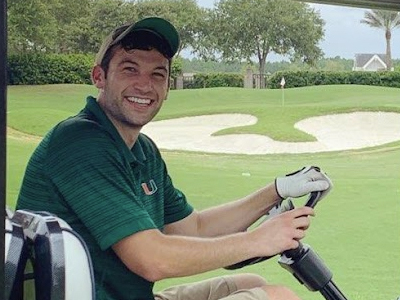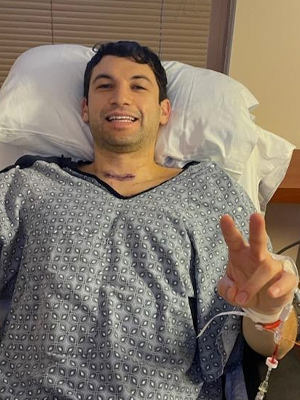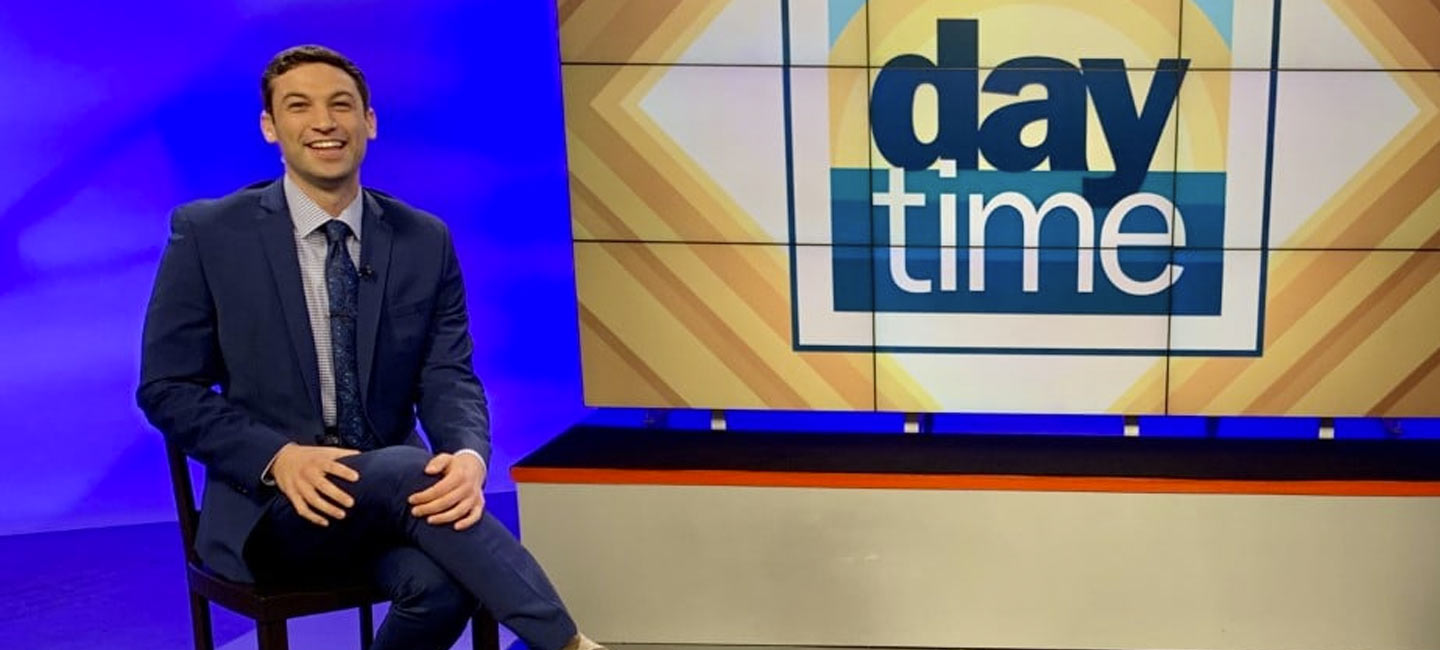‘Daytime’ TV Host Finds Voice After Thyroid Cancer Surgery
It’s not every day a healthy 25-year-old throws his back out on the golf course. For WFLA anchor and “Daytime” host Danny New, what started as a bad swing turned out to be something much more serious.

“I got lucky that I suck at golf,” says Danny New, whose golf injury led to an MRI that discovered his thyroid cancer.
“I got lucky that I suck at golf,” said New. “I had an MRI that showed two loose disks, but they also found something wrong with my thyroid.”
What followed was a series of tests that eventually revealed a thyroid cancer diagnosis. New’s doctors believe he had been living with a tumor in his neck for the better part of 10 years.
“That meant I would have had it in high school, and I would have never found out if I didn't have something else that happened to me.”
For that healthy 25-year-old, a cancer diagnosis was an even bigger surprise than a back injury.
“I eat kale, I drink oat milk, I work out every day. I do all the things I was told to do to be healthy,” said New. “I realized that you don’t do those things to prevent that stuff, you do those things because you never know when something like that could be coming. We’re all mortal and at any point, any of us could have cancer and we have to make sure we’re physically prepared for what’s to come.”

New’s doctors believe he had been living with a tumor in his neck for the better part of 10 years.
A month after his diagnosis, New was scheduled for surgery. Doctors would go into his neck and remove parts of his thyroid and the cancer along with it. For someone who is a professional speaker, the risk of having a permanent change to the way an audience hears you was unsettling.
“I host a TV show, so I use my voice every day and when they told me they were going to perform surgery in my neck, I was pretty scared,” said New. “Thankfully Moffitt has a lot of great features and services, so they set me up with a speech pathologist. It should be about a year before my voice is back to normal, but it’s a lot better now.”
Bridgette Alexandrou, a speech pathologist at Moffitt Cancer Center, worked with New following his surgery. According to Alexandrou, the two biggest challenges that thyroid resection surgery patients may have to overcome involve speaking and swallowing normally.
“That’s what Danny was experiencing after surgery,” said Alexandrou. “Those subtle voice changes, especially for a professional voice user, were a large concern.”
The typical timeline for voice recovery can vary for surgery patients. According to Alexandrou, sometimes recovery can be a few weeks, while others can take months.
“If the patient’s tumor has involved those really important laryngeal nerves, we’re winding up with some pretty significant impact on how the vocal cords move,” said Alexandrou. “Maybe the nerve has been damaged by the tumor itself or had to be moved and shifted during surgery. The extent of that involvement in how the nerve activates the throat muscles again can be the difference for someone who might just be a little hoarse and sore versus someone going through that longer recovery period.”
New’s recovery involved different exercises for breathing support, vocal cord strengthening, and shaping the sound and pitch of his voice. While he is still on the road to recovery, his work with Moffitt’s speech pathology program has allowed him to return to his hosting duties as he works to get back to 100%.
“I worked on all of these different ways to speak high pitched and speak low and speak in the middle, and I learned all about how your voice comes from your breath,” said New. “I had this opportunity now, given my voice was at its absolute worst and never been worse, but because of that it was like one step back, two steps forward. Now I’m so well-trained to understand my own line of work because of it, so I was able to find meaning in that.”



